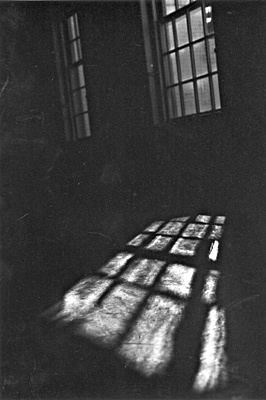All Nonfiction
- Bullying
- Books
- Academic
- Author Interviews
- Celebrity interviews
- College Articles
- College Essays
- Educator of the Year
- Heroes
- Interviews
- Memoir
- Personal Experience
- Sports
- Travel & Culture
All Opinions
- Bullying
- Current Events / Politics
- Discrimination
- Drugs / Alcohol / Smoking
- Entertainment / Celebrities
- Environment
- Love / Relationships
- Movies / Music / TV
- Pop Culture / Trends
- School / College
- Social Issues / Civics
- Spirituality / Religion
- Sports / Hobbies
All Hot Topics
- Bullying
- Community Service
- Environment
- Health
- Letters to the Editor
- Pride & Prejudice
- What Matters
- Back
Summer Guide
- Program Links
- Program Reviews
- Back
College Guide
- College Links
- College Reviews
- College Essays
- College Articles
- Back
Before the Wall Fell MAG
I am in awe of the freedom I hold in my hand. Itwas not something within the grasp of my parents, grandparents, or aunts anduncles. I cannot be labeled a Christian, Jew, Muslim or Buddhist. I am happy whenI realize I am free.
Until I was four years old, I lived in East Germany,a land without religious freedom. A high and dangerous wall divided us from therest of the world. We were trapped in our home country and lived in a cage.
Things changed when I was four. On November 9, 1989, the Berlin Wall camedown and Germany was once again united. People cried in the streets, rested ineach others' arms and hugged strangers as though they were old friends. My familysaw many of our relatives for the first time because they had lived on the"other side," as we called it. Unfortunately, I was too young tounderstand. I feel like I slept through it.
But my memories of those daysare still wonderful. I remember the words of our teachers in the Krippe (ourpreschool). They wanted to make good Communist soldiers of us, faithful littlepatriots. They told us bedtime stories about the good and bad brothers. The EastGerman people were the good brothers and our fathers were named Stalin and Lenin.The bad brother was West Germany, a place our teachers could not speak of withouthissing. We were terrified if anyone even mentioned it. We tried to do everything"the fathers" wanted, or else we would have a bad life.
Iremember trick questions like: "Does your mummy like Uncle Honecker?"(The president of East Germany at the time.) I knew I had to be quiet when mynanny asked me these questions. My parents always told me that something badcould happen if I ever mentioned their opinions.
I know now that theParty wanted to catch all those who were against the system. They feareddifferent opinions, they feared disturbances. They thought different attitudeswould weaken the Communist system. Even if you told a joke about the politicalparty and got caught, you could be thrown in prison.
I will also neverforget how I struggled for survival. I was often ill as a child because the Statedetermined my medical care. They would give me medicine without asking my familydoctor, who knew the history of my illnesses. Because of that, they nearlypoisoned me, being unaware that I was allergic to penicillin. My parents wereafraid for my life. Since I was sick so much, my parents have few pictures of meas a child. After Germany was reunited, I never got really ill again.
Iremember my parents talking about never being able to visit other countries toexperience different languages or cultures. We were stuck in East Germany. Wecouldn't even visit relatives in West Germany.
I recall my uncle tellingme about a girl in his class, who was the most intelligent student but Catholic.Because of her religion, she could not go to the university because the Partydecided who would go. The State didn't like people with any religion other thanthe "religion" of the State. Students who practiced religions wereisolated at school and made fun of in front of classmates. In the Party's eyes,it was the power, the one and only, the God of the people.
I alsoremember the elections. They wanted it to look like a free land, so they had whatthey called elections. But, in the end, my family didn't have a choice of who tovote for. There was only one party, one that idolized Russia and basically didwhatever Russia told it to. One example was the demonstration of June 17, 1952.People were in the streets, demanding greater freedom. When the Party askedRussia what to do, Russia said it was better to force people to obey the Partythan to compromise, so the military proceeded to arrest and kill many of theprotesters.
I am happy to have a life now without fear and punishment. Iam free to believe whatever I like. I can follow my passion to travel and meetpeople with different faces, opinions, cultures and traditions. When I was young,I could never voice my opinion. I had to watch what I said because I couldendanger my family.
If Germany had not been reunited, I would not have thefreedom to travel, be creative, or choose my own beliefs. I would only be able tolook out my window with longing.
Today, I celebrate this freedom. I canvisit the United States and be a student here. Today, I can have my own faithwithout being punished. This would not have been possible for the four-year-oldchild I once was. "Father" would not have permitted it.

Similar Articles
JOIN THE DISCUSSION
This article has 0 comments.
